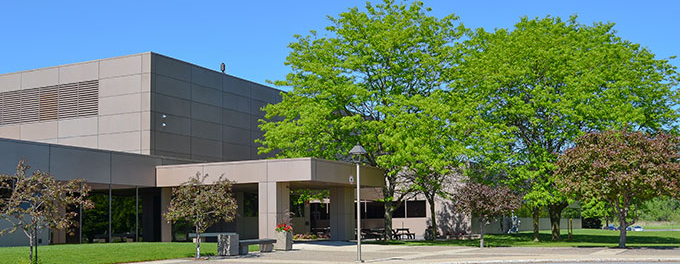The Saint-Hyacinthe Laboratory is located on the Ndakina, the traditional unceded territory of the W8banaki Nation.
About the Canadian Food Inspection Agency
The Canadian Food Inspection Agency (CFIA) is a science-based regulator with a mandate to safeguard the food supply, protect the health of plants and animals, and support market access. The Agency relies on high-quality, timely and relevant science as the basis of its program design and regulatory decision-making. Scientific activities inform the Agency's understanding of risks, provide evidence for developing mitigation measures, and confirm the effectiveness of these measures.
CFIA scientific activities include laboratory testing, research, surveillance, test method development, risk assessments and expert scientific advice. Agency scientists maintain strong partnerships with universities; federal, provincial and international counterparts; as well as industry, in order to effectively carry out the CFIA's mandate.

The Saint-Hyacinthe Laboratory offers diagnostic services for the detection and identification of bacterial and viral pathogens and for the certification of live animals, embryos and semen for import, export and surveillance of swine diseases and retroviral diseases, and surveillance of Trichinella and transmissible spongiform encephalopathies. The Laboratory participates in the development and improvement of analytical methods and conducts technical audits of private laboratories. It is also home to the CFIA's National Reference Centre for Food Virology.
What we do
Services
- Service and analytical support for food safety and animal health:
- detection, identification and characterization of bacterial and viral pathogens in foods
- development, improvement and validation of analytical methods
- certification of private laboratories for the analysis of retroviral diseases
- surveillance and control of animal diseases
- Scientific advice to inspection and program development.
- Regulatory research aimed at developing new tools, knowledge and tests to support the CFIA's programs and mandate.
Analysis and activities
Microbiology and food safety
- Detection and identification of bacteria responsible for foodborne illnesses and microorganisms of public health significance.
- Technical audits conducted in co-operation with the Standards Council of Canada and the Bureau de la normalisation du Québec for the accreditation of private laboratories in conformance to the ISO/IEC 17025 standard.
Food virology
- Detection and identification of foodborne viruses, such as noroviruses and hepatitis A.
- Development of methods and support for investigations during outbreaks as the CFIA's National Reference Centre for Food Virology.
- Research projects in genomics.
Animal health
- Certification of live animals, embryos and semen for import, export and animal disease surveillance.
- Surveillance of Trichinella and transmissible spongiform encephalopathies.
Pathology
- Continuing education of veterinarians working in abattoirs and the creation/revision of compendia of diseases.
- Pathology and telepathology services to support the meat hygiene program and determine the issues surrounding the humane transport of animals.
Quality management
All CFIA laboratories are accredited in accordance with the International Standard ISO/IEC 17025, General requirements for the competence of testing and calibration laboratories. The Standards Council of Canada (SCC) provides accreditation for routine testing, test method development and non-routine testing, as identified on the laboratory's Scope of Accreditation on the SCC website. Accreditation formally verifies the CFIA's competence to produce accurate and reliable results. The results are supported by the development, validation and implementation of scientific methods, conducted by highly qualified personnel, using reliable products, services, and equipment, in a quality controlled environment. Participation in international proficiency testing programs further demonstrates that our testing is comparable to laboratories across Canada and around the world.
Physical address
Saint-Hyacinthe Laboratory
3400 Casavant Blvd West
Saint-Hyacinthe, QC
J2S 8E3
More information
- Podcast with Dr. Émilie Larocque
- Article: What is in your bag of frozen berries? The Science Sleuths at CFIA take a closer look
Learn about other CFIA laboratories.